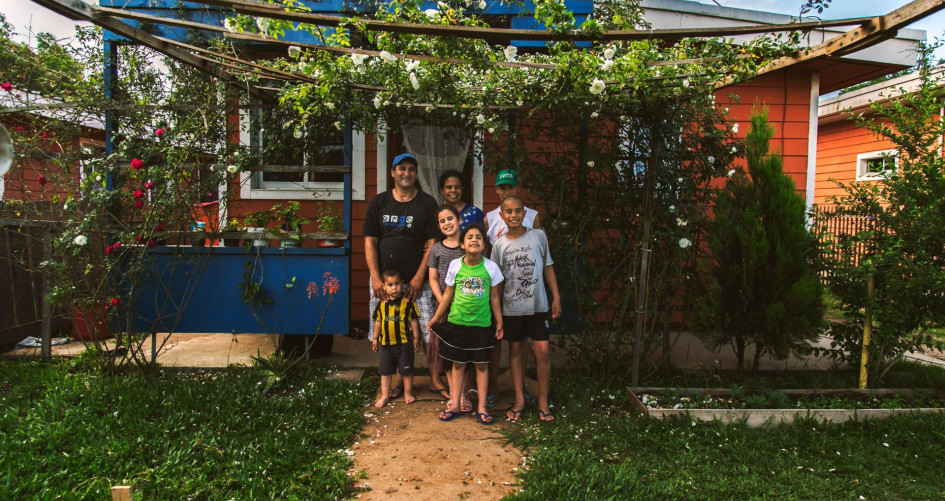Flooding is an urgent climate-related impact that is taking a toll on Uruguay.
The country’s National Resettlement Plan is relocating thousands of families out of flood-prone and polluted areas and into secure housing on secure land to help them adapt to the effects of climate change. The USD 42 million resettlement plan also includes job training for family members and the reuse of former flood-risk residential land into other flood-compatible uses.
Key facts
- As of July 2014, 789 families have been resettled from flood-prone and/or polluted areas across the country.
- More than 1,546 families are currently in the process of being resettled.
- The National Resettlement Plan aims to resettle 2,516 families that live in flood-risk and/or polluted zones by March 2015.
The problem
Climate change has contributed to a rise in extreme weather events - including higher-intensity hurricanes and heavier rainfalls. Scientists project that climate change will increase the frequency of heavy rainstorms, putting many communities at risk for devastation from floods.
In Uruguay, climate vulnerability from flood risks is one of the most important climate related impacts in the country. During the last decade, more than 67,000 people were evacuated from their homes in 60 cities across the country because of flooding.
Climate change has contributed to a rise in extreme weather events - including higher-intensity hurricanes and heavier rainfalls. Scientists project that climate change will increase the frequency of heavy rainstorms, putting many communities at risk for devastation from floods.
In Uruguay, climate vulnerability from flood risks is one of the most important climate related impacts in the country. During the last decade, more than 67,000 people were evacuated from their homes in 60 cities across the country because of flooding.
The solution
The National Resettlement Plan focuses on resettling families that live in extreme poverty and do not have the necessary resources to find housing alternatives or secure land on their own.
Resettling families that live in flood-prone areas into secure housing on secure land secure land improves their quality of life and reduces their vulnerability to the effects of climate change.
The community participates from the very beginning to ensure the move takes their needs and capacities into account and ensures they are granted a fair resettlement and a real improvement in their quality of life.
Helping people
The National Resettlement Plan has the potential to break the vicious cycle of the urban poor settling in flood-risk areas across major and mid-size cities.
Job training is provided for adult family members so that they can be included into formal employment networks that can help improve their income and quality of life.
Housing is provided according to the specific needs of families. This ensures opportunities for economic development, as well as the preservation of family and social networks for better social inclusion.
Spillover effect
The National Resettlement Plan is a scalable activity that has the potential to help at least 60% of the urban flood-risk population in the middle and long-term with appropriate financial resources.
The plan can be replicated in other countries that are facing similar risks due to flooding.




Images owned by the activity partners, all rights reserved.

